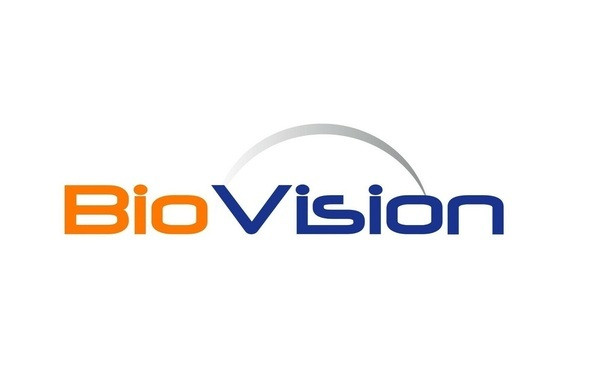Biovision
Human CellExp™ Renin, mouse recombinant
- SKU:
- 26-7241
- Availability:
- Usually Shipped in 5 Working Days
- Size:
- 10 μg
- Storage Temperature:
- -20°C
- Shipping Conditions:
- Gel Pack
- Shelf Life:
- 12 months
Description
Biomolecule/Target: Renin
Synonyms: CYMP, CYM, RENNIN, Chymosin
Alternates names: CYMP, CYM, RENNIN, Chymosin
Taglines: Plays an essential role in the elevation of arterial blood pressure
Taglines: USA
Country of Animal Origin: USA
NCBI Gene ID #.: 19701
NCBI Gene Symbol: REN
Gene Source: Mouse
Accession #: P06281
Recombinant: Yes
Source: HEK 293 cells
Purity by SDS-PAGE #: ≥95%
Assay: SDS-PAGE
Purity: N/A
Assay #2: HPLC
Endotoxin Level: < 0.1 ng/μg of protein (<1EU/μg).
Activity (Specifications/test method): Measured by its ability to cleave the fluorogenic peptide substrate 5FAM/QXL™ 520. The specific activity is >25 pmol/min/μg.
Biological activity: Measured by its ability to cleave the fluorogenic peptide substrate 5FAM/QXL™ 520. The specific activity is >25 pmol/min/μg.
Results: N/A
Binding Capacity: N/A
Unit Definition: N/A
Molecular Weight: The protein is fused with 6×his tag at the C-terminus and has a calculated MW of 43.2 kDa expressed. The predicted N-terminus is Leu24. Protein migrates as 45-55 kDa in reduced SDS-PAGE due to glycosylation.
Concentration: N/A
Appearance: Lyophilized powder
Physical form description: Lyophilized from 0.22 μm filtered solution in PBS. Generally 5-8% Mannitol or trehalose is added as a protectant before lyophilization.
Reconstitution Instructions: Centrifuge the vial prior to opening. Reconstitute in sterile PBS, pH 7.4 to a concentration of 50 µg/ml. Do not vortex. This solution can be stored at 2-8°C for up to 1 month. For extended storage, it is recommended to store at -20°C.
Background Information: Renin, also known as REN and angiotensinogenase, is a circulating enzyme that participates in the body's renin-angiotensin system (RAS), and plays an essential role in the elevation of arterial blood pressure and increased sodium retention by the kidney. Renin activates the renin-angiotensin system by cleaving angiotensinogen, produced by the liver, to yield angiotensin I, which is further converted into angiotensin II by ACE, the angiotensin-converting enzyme primarily within the capillaries of the lungs. Renin is secreted from kidney cells, which are activated via signaling from the macula densa, which responds to the rate of fluid flow through the distal tubule, by decreases in renal perfusion pressure (through stretch receptors in the vascular wall), and by sympathetic nervous stimulation, mainly through beta-1 receptor activation. Renin can bind to ATP6AP2, which results in a fourfold increase in the conversion of angiotensinogen to angiotensin I over that shown by soluble renin. In addition, renin binding results in phosphorylation of serine and tyrosine residues of ATP6AP2. The level of renin mRNA appears to be modulated by the binding of HADHB, HuR and CP1 to a regulatory region in the 3' UTR. An over-active renin-angiotension system leads to vasoconstriction and retention of sodium and water. These effects lead to hypertension. Therefore, renin inhibitors can be used for the treatment of hypertension.
Amino acid sequence: N/A
Handling: Centrifuge the vial prior to opening.
Usage: For Research Use Only! Not to be used in humans






